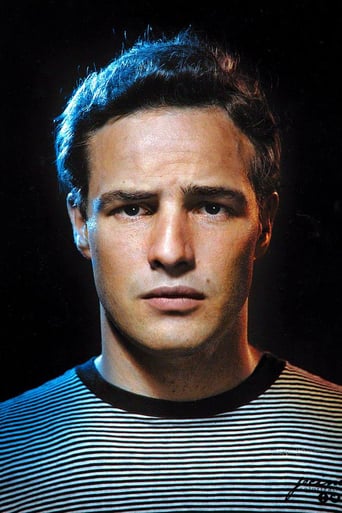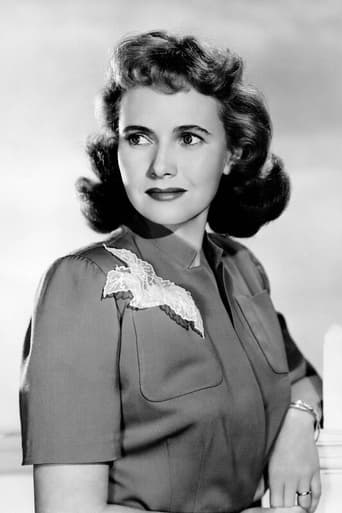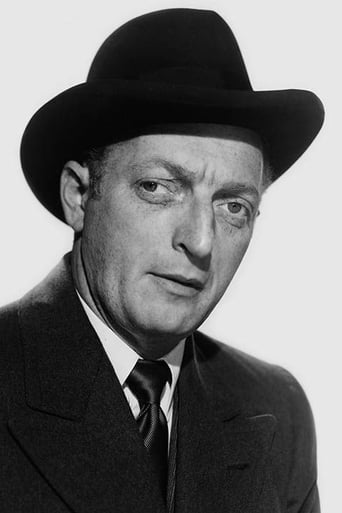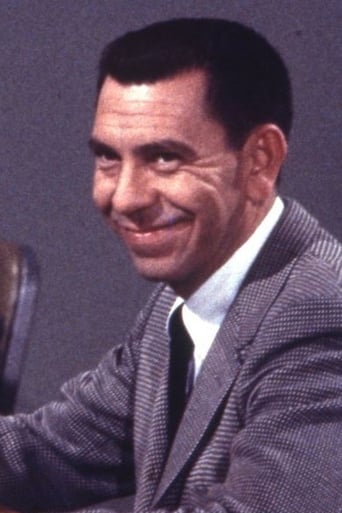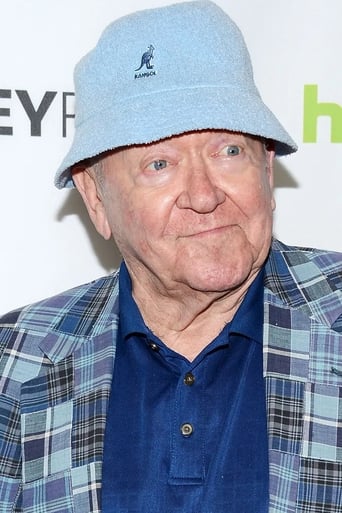AniInterview
Sorry, this movie sucks
Baseshment
I like movies that are aware of what they are selling... without [any] greater aspirations than to make people laugh and that's it.
StyleSk8r
At first rather annoying in its heavy emphasis on reenactments, this movie ultimately proves fascinating, simply because the complicated, highly dramatic tale it tells still almost defies belief.
ferbs54
In the 1972 megahit "The Godfather," Marlon Brando, playing Don Vito Corleone, uttered one of the most quotable movie lines of that decade: "We'll make him an offer he can't refuse." But 22 years earlier, Brando was presented with an unrefuseable offer himself, after being given a chance to read Carl Foreman's script for the upcoming film "The Men." In 1950, the 26-year-old Brando had not yet appeared on screen, but since 1944 had been something of a sensation on Broadway, especially after portraying Stanley Kowalski in "A Streetcar Named Desire" in '47. An early member of the Actors Studio as well as being an early practitioner of "The Method," Brando could not pass up the chance to appear in producer Stanley Kramer's film concerning the plight of paraplegic servicemen and their rehabilitation process in a veterans' hospital. The actor apparently dove into his first screen role, spending weeks observing the inmates at the Birmingham Veterans Administration Hospital (in Van Nuys, California; not Alabama, as I initially assumed), where much of the film was later shot; 45 patients of the hospital also appear in the finished film. And, as might be expected, Brando is simply terrific, giving an emotionally complex performance, eliciting the viewer's affection, and clearly demonstrating to the world that a new screen star had arrived.When we first see Brando's Ken, he is an armed infantryman, a lieutenant prowling the deserted streets of an unnamed European town with his squad. A sniper's bullet catches Ken in the lower back, immediately paralyzing him from the waist down. A full year later, the ex-G.I. lies in a vets' hospital, sullen, withdrawn, angry, and completely antisocial. "I was afraid I was gonna die...now I'm afraid I'm gonna live," he thinks to himself. Fortunately for Ken, his doctor, Brock (a hugely ingratiating performance here from Everett Sloane), moves him from his private room to a ward with other men, in the hopes that a little social interaction might do him some good. Though initially surly to his three immediate neighbors--Norm (a goateed Jack Webb, here in one of his earliest roles at age 30, and right before appearing in "Sunset Blvd.," which was released just two weeks after "The Men"), Angel (a muscular Hispanic dude, the nicest guy on the floor, and well played by Arthur Jurado) and wheeler-dealer Leo (Richard Erdman)--Ken soon comes out of his shell, makes friends, and enters into the rehab process in earnest. The reason: his ex-girlfriend, Ellen, who, despite Ken's constant rebuffs, seems eager to enter into matrimony with him. Ellen is played by Teresa Wright, by the way, who, eight years earlier, in "Pride of the Yankees," portraying Lou Gehrig's wife, Eleanor, had similarly cared for a severely disabled man....During the course of "The Men," we get to know many of the inmates of the Birmingham facility and see, in some detail, the rigorous physical rehab regimen that Ken undergoes. The film also spotlights some of the problems that disabled men and their spouses experience, although, given the era, does tend to shy away when the subject of sexual intimacy arises; Brock simply tells Ellen that some paraplegic men are able to have families and some are not. Brock, I might add here, is the kind of doctor we all wish we had--one who is at once deeply caring, patient, understanding, and tough when necessary--and Sloane is just perfect in the part. Besides the fine players already named, "The Men" features an uncredited De Forest Kelley as a doctor, a good 16 years pre-Dr. "Bones" McCoy, whose only line in the film (concerning Ken) is "He's got a lot of pain," as well as John "Perry White" Hamilton as Ken and Ellen's wedlock priest, here just a few years before "The Adventures of Superman." The picture sports any number of wonderful scenes, among them: the men's and staff's reaction when Angel suffers a very serious reversal (a truly upsetting sequence); Ellen discussing her marriage plans with her disapproving parents; Ken and Ellen entering a nightclub and being at the receiving end of multiple stares; Brock revealing something of his own past to Ken, in the hopes that the young man will learn to embrace his future life; and, most especially, Ken and Ellen returning home after their wedding, with the reality of her future hitting Ellen forcefully, with unfortunate results. Throughout, director Fred Zinnemann's work is sensitive and involving (what a decade Zinnemann would have, with such films as "High Noon," "From Here to Eternity" and "The Nun's Story"!), and Dimitri Tiomkin's score perfectly matches both the darker moments (particularly in the film's earlier scenes, when Ken lies in his shadowy private room) as well as the more upbeat. But towering above all--despite the fact that he naturally remains either supine or sitting in a wheelchair for the bulk of the picture--is Brando, who easily steals his first film (hardly the only time he would do so, of course!). Running the gamut from grief and hopeless withdrawal, to hope and determination, back to grief and anger, and ultimately on to a tentative acceptance and happiness, it is a marvelous performance for the first-timer...and yes, he even gets to give us the first of his many on-screen temper tantrums, destroying several windows after his disastrous wedding night. Just watch how wonderful Brando is, as Ellen seriously discusses marriage plans; we can see the dawning realization that he just MIGHT have a stab at happiness clearly written on his face. Plainly exhibiting the three H's that can guarantee an actor's success (handsome, hunky, and a helluva performer), it is no wonder that Brando's star was immediately on the rise. His initial, early screen promise here was soon to be fully realized in the following year's screen adaptation of "Streetcar," in which Brando surely gave a performance for the ages, but those viewers who are curious to see where it all began should be more than impressed with Marlon's tyro work in "The Men"....
secondtake
The Men (1950)Well, you do have to see a movie like this partly to see Marlon Brando before his stellar rise to fame (ultra-fame) in "On the Waterfront" (1954) and "Streetcar Named Desire" (the next year, 1951). This is his first role, and he's already the famous, complex, simultaneously macho and tender Brando. He plays Ken, and he is bedridden because he can't walk.Around him are a host of actors, amateur and professional, who are all unable to walk, probably permanently, from war injuries. This is a story of adjusting to being in a wheelchair, getting others to accept you like this, and ultimately getting to accept it yourself. It's an emotional more than a physical battle, and a powerful one.The doctor in charge is in some ways the main character, or the most present, throughout, and he's strong if somewhat uncomplicated in his portrayal of a devoted, tireless medical worker. He's played by Everett Sloan, who has just come off a bizarre but terrific role as a rich lawyer with difficulty walking in "Lady from Shanghai" (a Welles movie--and Welles gave Sloan his entrance into Hollywood in "Citizen Kane").The woman who is both lovingly sympathetic and also scared in her uncertainty as Ken's girlfriend and wife. She's kind of perfect, turning into that somewhat disconnected 1950s housewife before our eyes (influenced surely by her officious if kindly parents, a kind of 1930s Republican do good but also look out for yourself first attitude). It's a perfect fit, set up by the screenwriter and worked by with surprising believability by the young director, Fred Zinnemann ("From Here to Eternity") with Stanley Kramer producing. These two men were among the most socially conscious in a post-war Hollywood that had many directors trying to make a difference in their films (Kazan and Lumet would be two others). And "The Men" is certainly about showing a problem with realism and optimism at the same time. It's a kind of parallel to the film noir films which made dramatic fictions out of many returning servicemen. This was closer to the reality for many.Is it a great film? For some small reasons, no, as much as Brando is convincing in his role. For one thing, it's just too clear what the motivation of the director and producer is, so the movie movies forward without clear dramatic tension (even though you don't quite know the outcome). For another, the acting is generally very good without being wrenching (and the subject is frankly wrenching). It feels a little like we're being given a lesson, a good lesson, but still a bit like schoolwork made vivid on the screen. This will be apparently right from the first scene where a room full of wives and girlfriends ask questions (frank and important questions) of the doctor, who wisely and frankly answers them.Good stuff, great stuff, and as a film experience, incomplete stuff.
dbdumonteil
....to mention one of William Wyler's finest films.Teresa Wright was in that movie too,she was the banker's daughter Fred married .She was in "Mrs Minniver" as well.She was par excellence the girl-they-left-behind.Wright is a as sensitive as tender and as warm as ever ,but she is overshadowed by Brando's brilliant debut,fresh from the actor's studio. But all the cast is to be praised particularly Everett Sloane as doctor Brock who tries to help paralyzed war vets to adjust to the world without their limbs.Great scenes:The moment when the doctor explains to the wives/fiancés/mothers how heavy their task is.The scene when Brando has an argument with a civilian,a sequence which will remind you of a similar scene featuring Dana Andrews in "best years of our lives" .French title is "C'étaient des Hommes" ="They were men! .This is a stupid one.They ARE men!
sol1218
(Mild Spoilers) Powerful drama, even though a bit dated now, about veterans who lost their ability to walk due to injuries on and off the battlefield trying to adjust to a new world. As well as renewing their relationships with those that they left behind, friends families and sweethearts, who in some cases try to forget that they ever existed.Taking a bullet in his back as he lead his troops into a German-occupied French village Let. Ken Wilcheck, Marlon Brando, is left paralyzed from the waist down. Given the bad news from his doctor Dr. Brock, Everett Stone, that he'll never walk again leaves Ken Wilcheck a stunned and broken man. The depression and self loathing for himself engulfs Ken in the realization that he'll never be a real man again. Ken's back at home sweetheart Elly Wilosek, Teresa Wright, who waited four years for him to return and who loves him even more then she did when he was healthy is now totally shunned by him.The battle that Ken Wilcheck, as well as the crippled veterans in the veterans hospital with him, had off the battlefield was as, if not more, emotional and heart-wrenching as any of the battles that he fought on it. Ken ends up fighting against himself and those, like Elly and Dr. Brock, who tried to help him in facing the real world which took everything out of him and almost cost, in him getting himself drunk and smashing himself up in a car crash, Ken his life.The movie "The Men" shows what men like Ken Wilcheck go through and how, in their own unique and individual ways, try to overcome the almost insurmountable obstacles in their path; by at first putting their permanent injuries behind them and then going back to a normal life. Ken himself is at first not willing to accept what fate gave to him and just lays in his hospital bed waiting to die or rot away. It's Elly who more then anyone else who gets him to overcome his deep depression. Since, unlike his fellow disabled veterans, she has her life ahead of her as a healthy and non-disabled young woman. Elly is more then willing to give up what any young woman would want more then anything else; a handsome, not that Ken isn't, and healthy husband and family in order to spend the rest of her life with him.Elly herself is confronted with Ken's condition by her parents Mr. & Mrs. Wilosek, Howard St. John & Dorothy Tree, who are anything but overjoyed in her wanting to marry the disabled veteran which makes her even more determined to tie the knot with him. That in some way, after she and Ken are married, almost destroyed their marriage as soon as it began. Being overly self-conscious and trying to baby Ken, instead of treating like a husband. Elly unknowingly makes it plain to Ken that she made a big mistake in marrying him which the sensitive as well as heart-broken Ken senses. That has the by now emotionally destroyed veteran leave her and go back to the hospital where her just was discharged from never wanting to see Elly again.Depressed and drunk Ken almost gets himself as well as his fellow disabled vet Leo, Richard Erdman, killed when the two went out to paint the town red, as well as get smashed on booze. Elly later tries to apologize, going to see Ken at the hospital, in what she did in making her now estranged husband run out on her. But as always it was up to Ken to make the first move and in the end he did it like the man, even though for a long time in the movie he had his doubts, that he always was.P.S One of the most poignant as well as explosive moments in the movie that really brought out the "Thin Red Line" that disable vets like Ken had to "walk" on when dealing with people in everyday life came very unexpectedly in "The Men". This happened when both Ken and Leo are approached in a bar by a somewhat drunk patron, Ray Teal. Teal who after telling the two what a great job, in getting themselves shot and almost killed, and service that they both did for their country is then stunned to almost being speechless. That's when Ken, sick and tired of being patronized by him, told the guy if he would be happy to have him marry his daughter! You can just imagine what happened after that!


